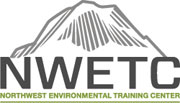**This course will be presented online as a live webinar in three 2-hour sessions. Sessions will be recorded and will be available to all enrolled attendees.**
All classes will be from 10 a.m.-noon Pacific (11 a.m. to 1 p.m. Mountain) (noon to 2 p.m. Central) and (1-3 p.m. Eastern).
This webinar is being presented by Sustainable City Networks and NWETC
This introductory course will be focused on the general policy and technical approaches to conducting an ecological risk assessment. It will provide a broad overview of the ecological risk assessment (ERA) process as it is used in evaluating potential environmental risks and liabilities associated with hazardous waste sites using the basic ERA paradigm as outlined in USEPA’s Ecological Risk Assessment Guidance for Superfund (ERAGS). ERA’s in both aquatic and terrestrial settings will be examined, and active engagement with the attendees will reinforce the points presented.
After completing the course, attendees will have a general understanding of the process of planning and preparing for the completion of an ERA, including data development needs, selection of endpoints, and the development of lines of evidence.
Environmental professionals, consultants, environmental lawyers, governmental employees, and environmental students who may have the opportunity to manage or oversee the development of an ecological risk assessment will benefit from this introductory course. NWETC recommends that anyone who will be completing an Ecological Risk Assessment attend the Advanced course as well.
"Very knowledgable instructor…[liked] case studies and field trip." N. Bland, July 31-Aug.1, 2013
"Knowledgable/experienced and a good presenter..[liked] intro to a subject I need to understand." A. Kapell, July 31-Aug.1, 2013
"The information was presented/taught very well. I have a better understanding of ERA's. I am very impressed with the course." C. Marchand, September 2013
"The instructor was great! He was very knowledgable of the subject and explained it well. Very Helpful – even for someone involved in a ERA for the last four years." C. Marchand, September 2013 |








